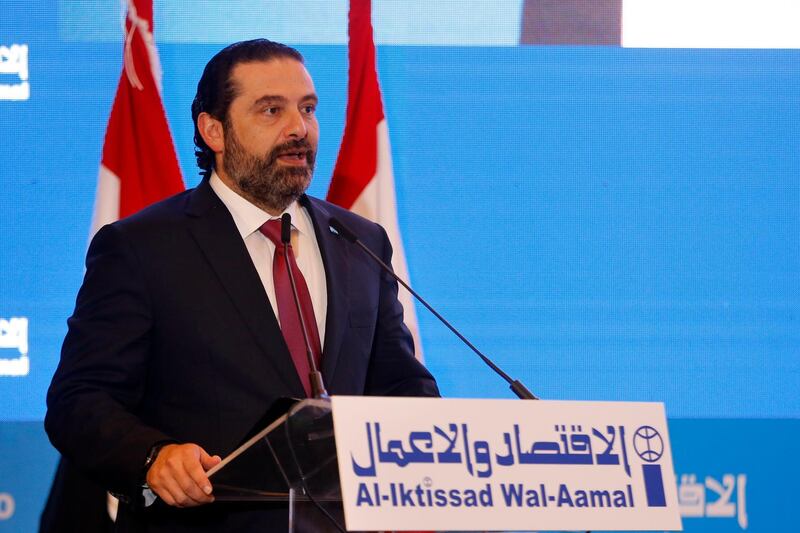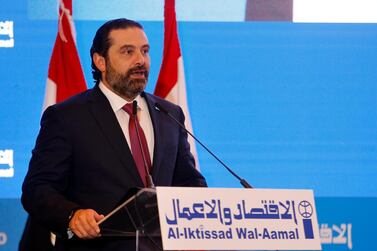The International Monetary Fund projects that Lebanon's budget deficit for 2019 will rise "well above" the government's stated target of 7.6 per cent of the country's gross domestic product.
The fund estimates that budget measures will reduce Lebanon's cash-basis fiscal deficit to about 9.75 per cent of GDP this year, it said on Wednesday.
"Although the budget has not yet been approved and there is uncertainty about what form the approved budget will take, on the basis of current information the projected deficit is likely to be well above the authorities’ stated target," according to the The IMF Article IV mission.
Lebanon's parliament is currently debating the 2019 draft budget, which the cabinet approved in May. Its economy has stalled as a result of internal political bickering and an eight-year war in neighbouring Syria. Annual GDP growth rates have fallen to between 1 and 2 per cent, compared to 8 to 10 per cent in the pre-war years. The country’s financial crisis was compounded by political wrangling amid a nine-month leadership void, until Lebanon finally formed a new government led by prime minister Saad Hariri on January 31.
As part of the budget plans, the government plans to cut 1 trillion pounds from debt-servicing costs by issuing 11 trillion Lebanese pounds (Dh26.8bn) of Treasury bonds to commercial banks.
Buying this government debt would worsen the central bank's balance sheet and undermine its credibility, the IMF said. Banque du Liban, as the central bank is known, should let the market determine yields on government debt.
Lebanon's government plans to reduce the budget deficit by reforming its ailing electricity sector and cutting public sector benefits.
"The measures proposed in the budget together with savings from electricity sector reforms are projected to reduce the primary deficit in 2020-22 but leave debt on a rising path," the IMF said.
The fund forecasts that a primary surplus of about 4.5 per cent of GDP will be needed to noticeably reduce the debt-to-GDP ratio over the medium to long term.
"The authorities will need to identify and implement additional permanent fiscal measures to achieve the necessary primary surplus," it said.
The fund suggested revenue measures such as raising the value-added tax (VAT) rate, increasing fuel excises and intensifying efforts to increase tax compliance.
"The government now has an opportunity to implement reforms and turn the tide," the IMF said. "The electricity reform and the budget are the first steps on a long path to re-equilibrate the economy that will need to involve further fiscal adjustment and radical structural reforms.
Reforms will help unlock $11bn in donor funding pledged at a Paris conference last year for investment in the economy.








